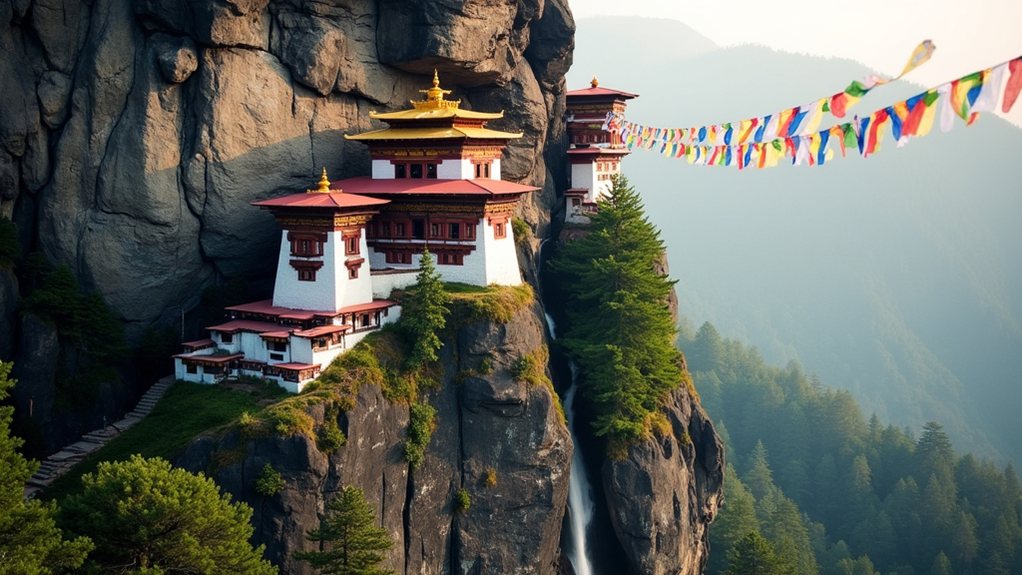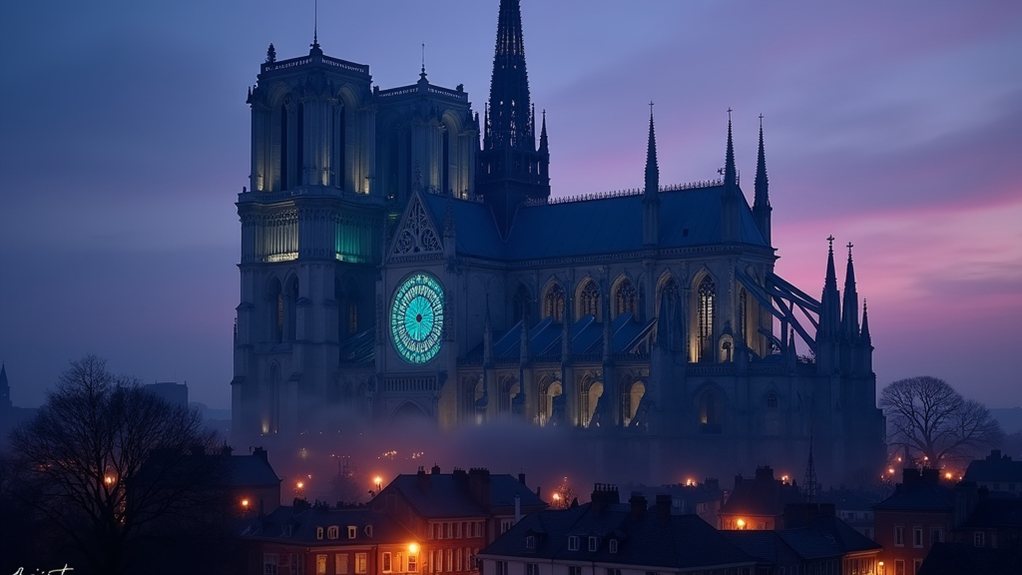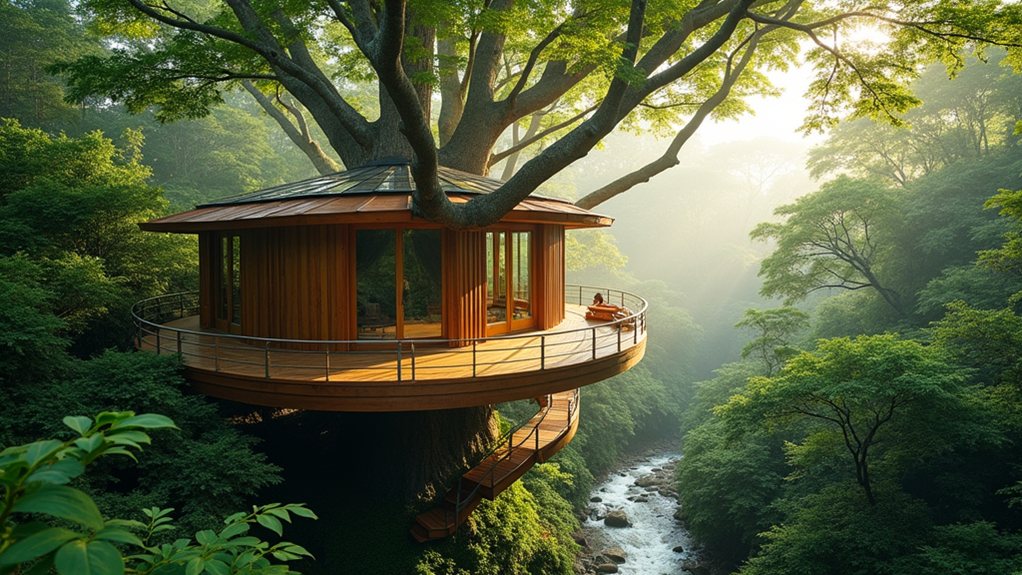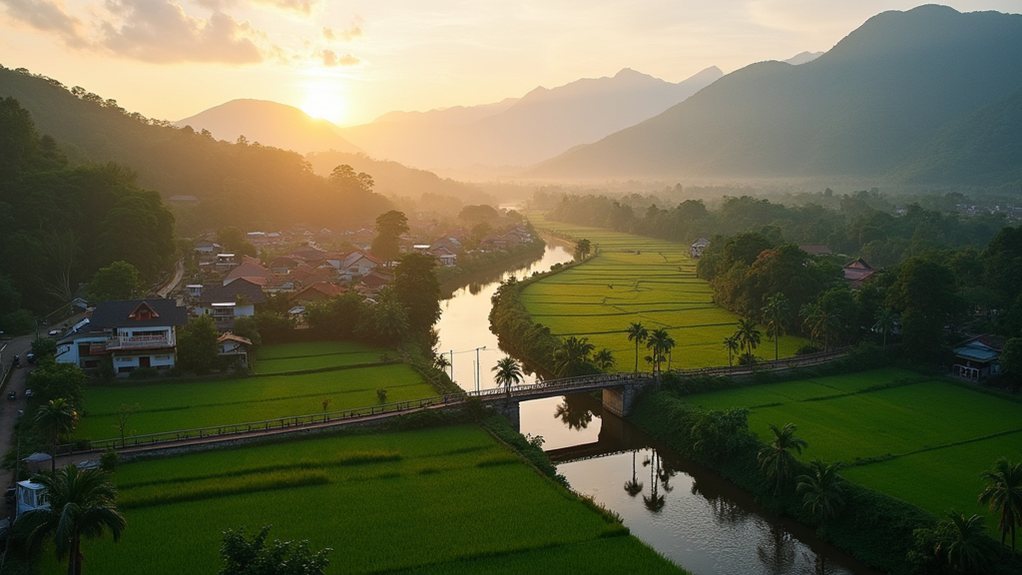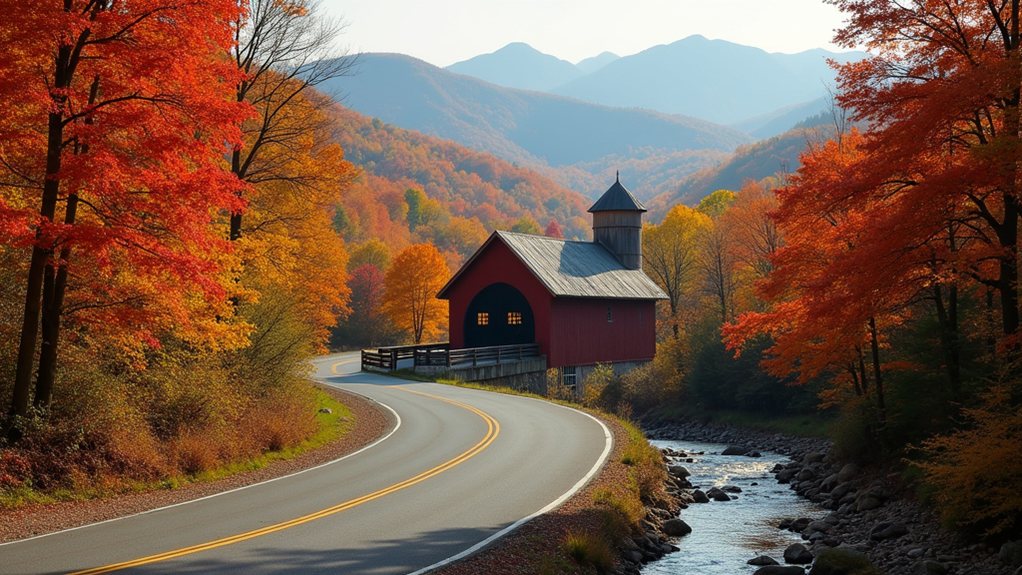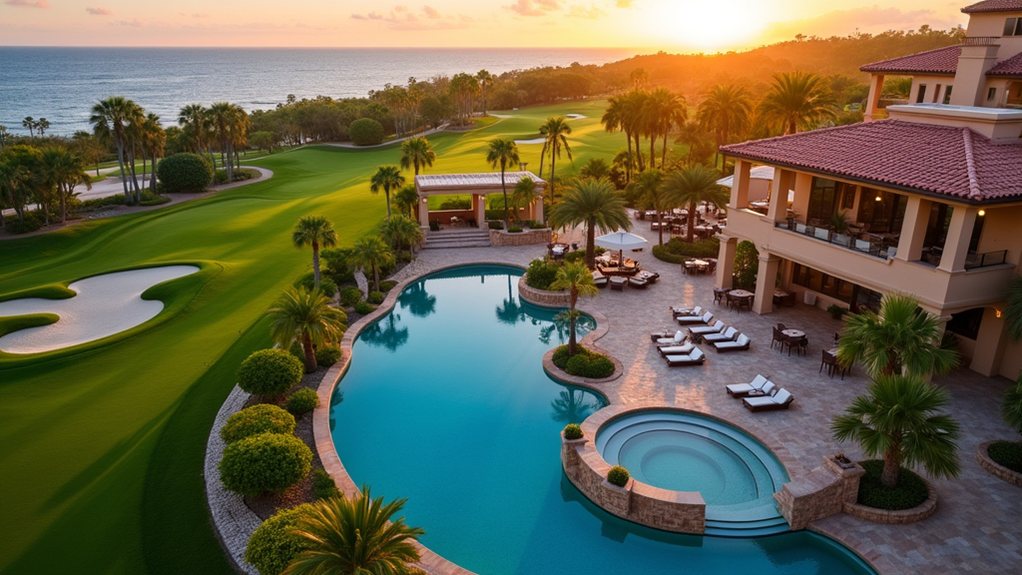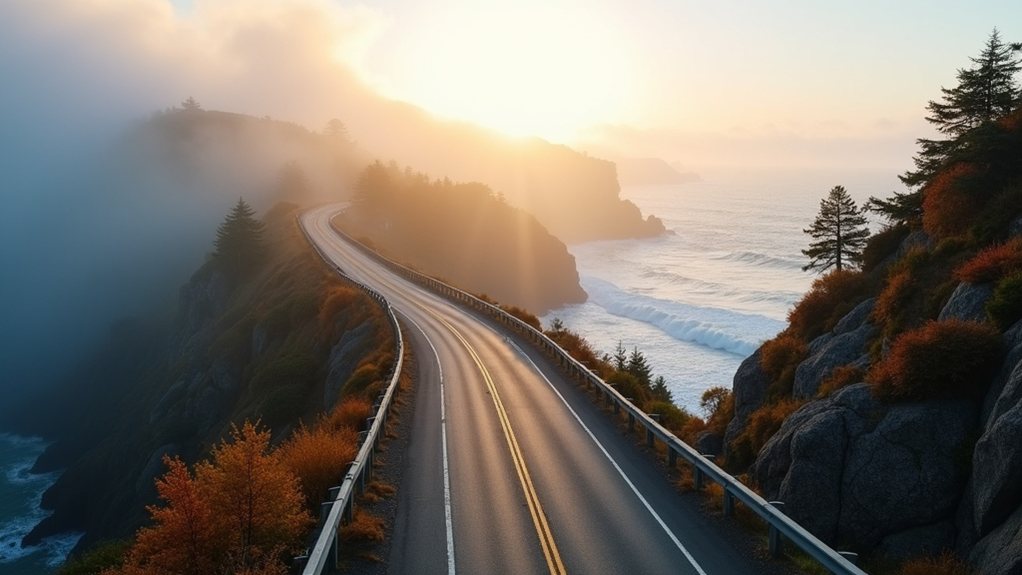Bhutan, the dragon kingdom tucked between China and India, isn’t merely a geographic curiosity—it’s Buddhism’s last sovereign stronghold. Its dzongs, monasteries, and temples don’t just exist; they radiate with gold-leafed roofs and vibrant prayer flags that flutter against dramatic mountain backdrops. Locals call their homeland “Druk Yul,” where masks of demons dance in religious festivals, and GNH (Gross National Happiness) trumps GDP as the measure of success. What makes this Himalayan jewel resist the tides of secularism?
The Last Himalayan Buddhist Kingdom
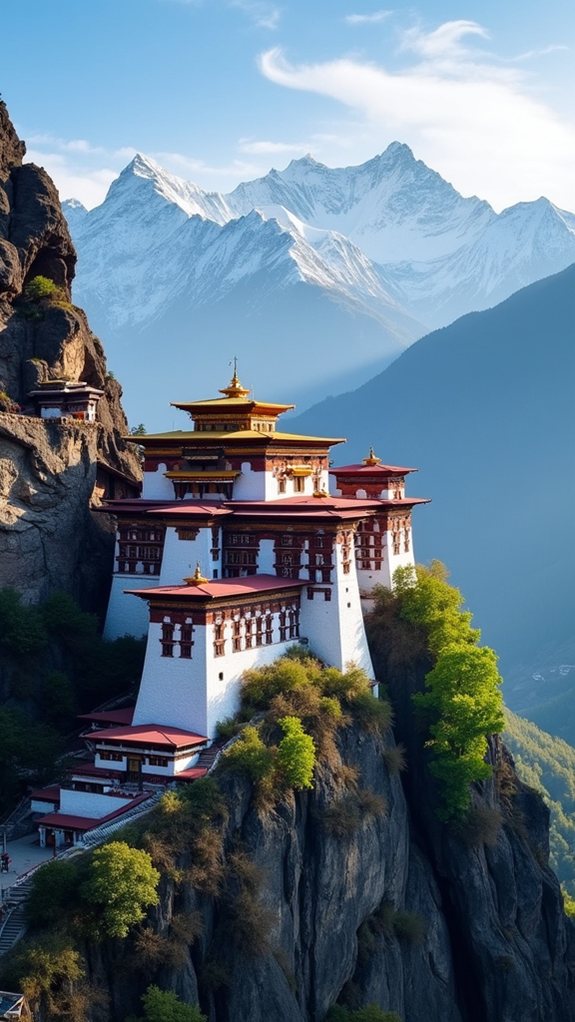
Situated high in the Eastern Himalayas, where prayer flags flutter against snow-capped mountains and monks chant in ancient dzongs, Bhutan stands as the world’s last Buddhist kingdom. This landlocked nation, similar in size to Indiana but with Alaska’s population, sits tucked between China’s towering presence to the north and India’s vast expanse to the south.
The capital, Thimphu, serves as the pulsing heart of a country that deliberately limits its accessibility, with merely two airlines offering entry points for the curious traveler.
The kingdom’s story stretches back to 2000 BC, though much of its early history vanished in devastating fires that consumed irreplaceable records. Buddhism arrived in the 7th century, brought by Tibetan king Songtsen Gampo, eventually becoming the foundation of Bhutanese identity.
In the early 17th century, the visionary Ngawang Namgyal unified the region and established the dzong system—fortress-monasteries that still dot the countryside today, radiating golden light from their ornate temples.
Unlike most nations fixated on economic indicators, Bhutan measures success through Gross National Happiness, prioritizing well-being over wealth. That’s not to say they’re struggling financially—the country boasts one of the world’s fastest-growing GDPs, powered by hydropower, sustainable agriculture, and strictly regulated tourism.
Bhutan’s unique semi-constitutional monarchy, led by King Jigme Khesar Namgyel Wangchuck, converted to democracy only in 2008. Yet Buddhism remains inseparable from governance, with the government actively subsidizing monasteries, shrines, and religious programs while ensuring Buddhist voices influence public policy. The current king succeeded his father, King Jigme Singye Wangchuck, who initiated the remarkable transition from absolute monarchy to a constitutional democratic system.
In Bhutan, democracy and dharma dance together—a modern government still deeply rooted in ancient Buddhist principles.
Until recently, this Himalayan jewel maintained remarkable isolation, banning internet, television, and Western clothing to preserve its cultural integrity. Now, it’s attempting a delicate dance with globalization, cautiously embracing modern technologies while fiercely protecting traditions.
In Bhutan, monks still debate philosophical questions in ancient courtyards, farmers still practice centuries-old agricultural techniques, and citizens still don traditional gho and kira garments—a living museum where the past and present coexist in golden harmony. The country exemplifies what scholars like David L. McMahan describe as cultural adaptations of Buddhism, where historical indigenous traditions blend harmoniously with selective modern influences. Visitors to this breathtaking kingdom can experience the spiritual atmosphere that permeates everyday life while marveling at the intricately painted monasteries set against pristine Himalayan landscapes. The country’s commitment to pura vida philosophy resembles Costa Rica’s emphasis on simple living and natural wellness, though expressed through distinctly Buddhist practices and traditions.

